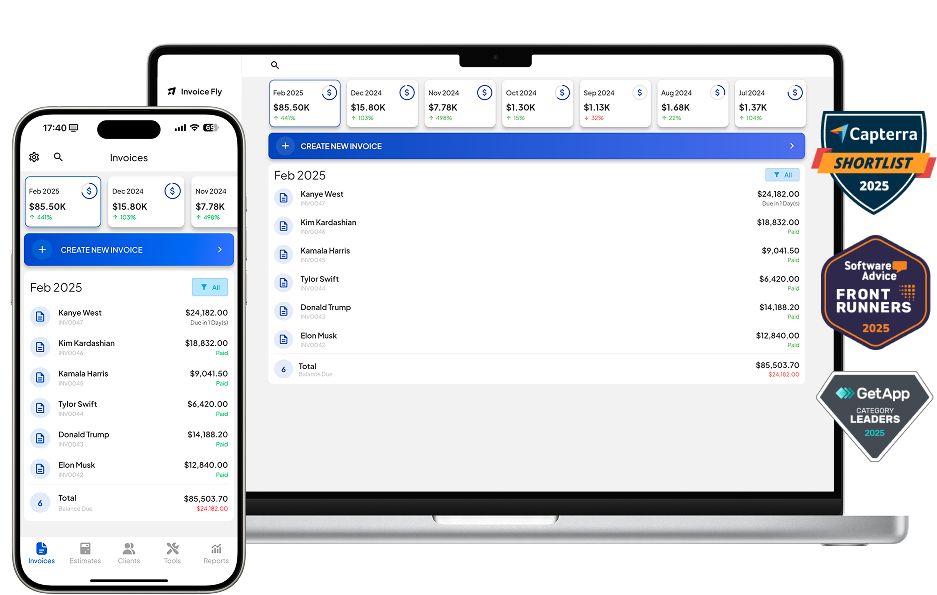- Home
- »
- Glossary Of Terms
- »
- Form 941
IRS Form 941: Employer’s Quarterly Federal Tax Return Explained
IRS Form 941, also called the Employer’s Quarterly Federal Tax Return, is the form businesses use to report income taxes, Social Security, and Medicare taxes withheld from employees’ paychecks, as well as the employer’s portion of Social Security and Medicare taxes.
Who Needs to File Form 941?
Most U.S. employers who pay wages subject to federal income tax, Social Security, or Medicare must file Form 941 each quarter. Only a few exceptions apply, such as seasonal employers, household employers, or businesses that have received specific IRS approval to file annually.
Key Information Reported on Form 941
- Wages paid to employees
- Federal income tax withheld
- Employer and employee share of Social Security and Medicare
- Adjustments for sick pay, tips, and group-term life insurance
- Tax credits (such as COBRA or Employee Retention Credit, when applicable)
Deadlines for Filing
Form 941 must be filed four times per year—once per quarter. The deadlines are usually the last day of the month following the end of the quarter:
- 1st quarter (Jan–Mar): April 30
- 2nd quarter (Apr–Jun): July 31
- 3rd quarter (Jul–Sep): October 31
- 4th quarter (Oct–Dec): January 31
If the due date falls on a weekend or federal holiday, the deadline is extended to the next business day.
Form 941 vs. Form 940
Form 941 is filed quarterly to report federal income tax withholding and payroll taxes, while Form 940 is filed annually to report Federal Unemployment Tax Act (FUTA) obligations. Employers typically need to file both.
Common Questions About Form 941
- What is the 941 form for? To report employee wages, taxes withheld, and employer payroll taxes.
- What is the difference between 940 and 941? Form 940 is for FUTA (annual), while Form 941 is for federal payroll taxes (quarterly).
- Who is not required to file Form 941? Seasonal employers, household employers, or those with special IRS approval.
- Do LLCs need to file Form 941? Yes, if the LLC has employees subject to federal income tax, Social Security, or Medicare withholding.
- Who fills out Form 941? Employers, typically with help from payroll providers, CPAs, or tax software.
How to File Form 941
Employers can file electronically via the IRS e-File system or mail the form to the correct IRS address, depending on their location and whether they are sending a payment. Electronic filing is generally faster and more secure.
Tip: Keep copies of filed forms and proof of payment for your records, as the IRS may request them during audits or compliance checks.
Form 941 vs Form 940 vs Form W-2 (Quick Comparison)
These common IRS forms cover different parts of U.S. payroll tax compliance. Use this guide to know which one you need and when.
Form 941 — Employer’s Quarterly Federal Tax Return
- Purpose: Reports federal income tax withheld, Social Security, and Medicare (both employer and employee shares).
- Who files: Most employers with employees subject to federal withholding and FICA.
- Frequency: Quarterly.
- Due dates: Apr 30, Jul 31, Oct 31, Jan 31 (for prior quarter).
- Notes: Includes adjustments (tips, sick pay) and certain credits (e.g., COBRA credit, if applicable).
Form 940 — Employer’s Annual Federal Unemployment (FUTA) Tax Return
- Purpose: Reports FUTA tax liabilities for unemployment insurance.
- Who files: Employers that paid $1,500+ in wages in any calendar quarter, or had one or more employees for part of a day in 20+ different weeks in the year.
- Frequency: Annually.
- Due date: Jan 31 (Feb 10 if all FUTA tax was deposited on time).
- Notes: Separate from Form 941; FUTA is employer-paid (not withheld from employees).
Form W-2 — Wage and Tax Statement
- Purpose: Reports each employee’s annual wages and taxes withheld.
- Who files/sends: Employers must furnish W-2s to employees and file copies with the SSA (and states, where required).
- Frequency: Annually, per employee.
- Due dates: Provide to employees by Jan 31; file with SSA by Jan 31.
- Notes: Employees use the W-2 to file their personal tax returns.
Which form do I file?
- Have employees? File Form 941 each quarter and Form 940 annually (if subject to FUTA). Issue W-2 to each employee at year end.
- No employees (contractors only)? You generally don’t file 941 or W-2, but you may need to issue 1099s and file Form 940 only if FUTA applies (rare without employees).
- Seasonal employers: May skip quarters with no wages, but must file for quarters with wages.
Tip: Align your payroll deposits (semiweekly or monthly) with your 941 liabilities and reconcile quarterly totals to annual W-2/W-3 and 940 filings.

FAQs 1095 C Form
You don’t need to attach it to your tax return, but you should keep it for your records and may need it when filing.
No. It’s an informational form only and does not affect how much tax you owe.
To document employer-provided health insurance offers and help the IRS enforce ACA requirements.
Because your employer was required to report that they offered you coverage, even if you declined.

Other Free Resources

Try Invoice Fly Today
- Send quotes & invoices in seconds
- Collect card & online payments
- Receive instant notifications
- Win more jobs

